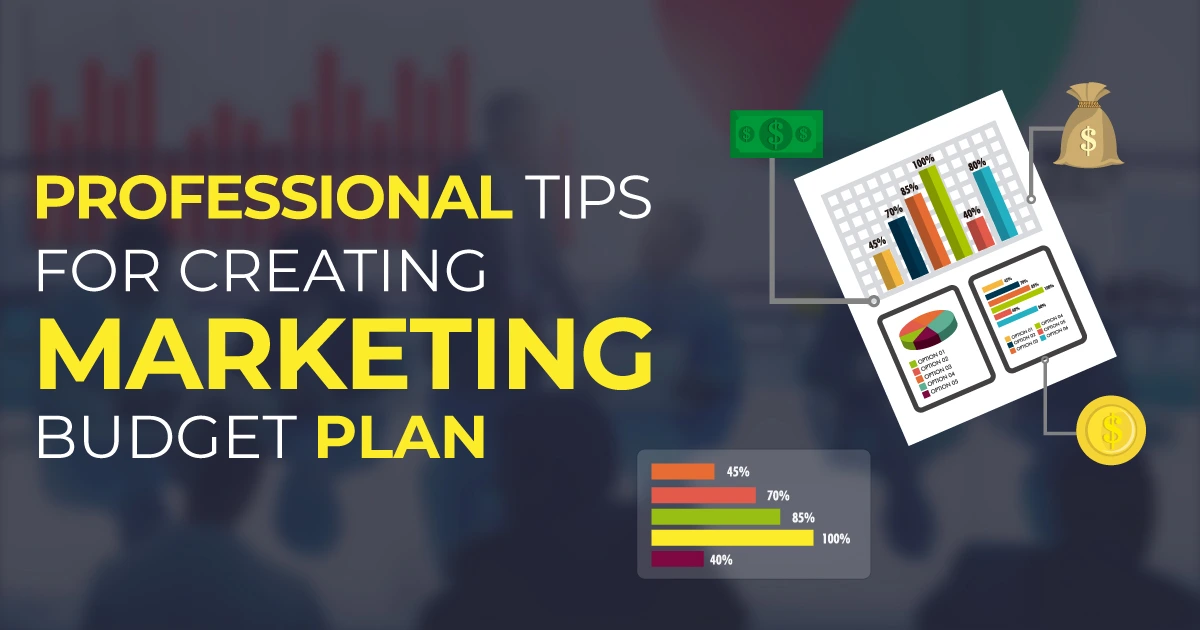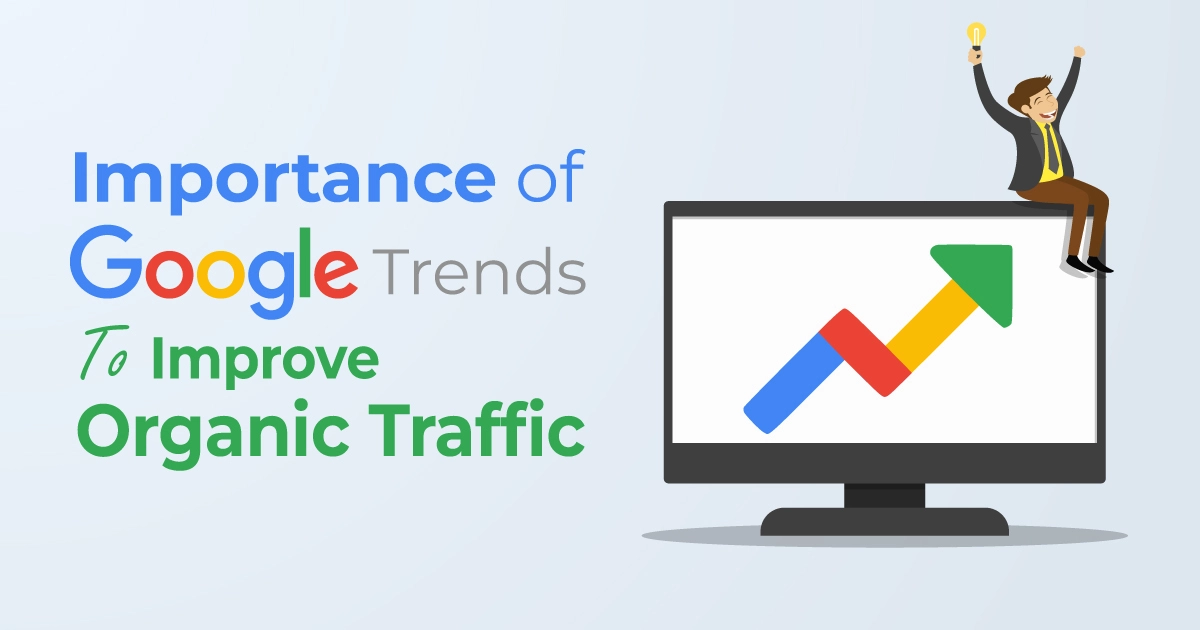There’s always a debate about using paid search, organic search, or both to enhance audience engagement, traffic, sales, and brand awareness. Since you have clicked on this article, I assume you are also confused about which one would be the best option for your company’s growth.
Both organic search and paid search have distinctions, advantages, and disadvantages that will help you grow your company in different ways. I will explain everything you need to know about organic search vs paid search in this article. Continue reading!
What is Organic Search and Paid Search
As the name suggests, organic search is organically done by SEO optimizers. According to the brand niche, SEO professionals research the website and potential competitors, fix the links, ensure website functionality, do high-quality backlinks, publish high-quality SEO-friendly content, and increase website visibility and ranking in search engines.
Again, just like the name, paid search is you pay to get your brand found in search engines and increase sales rapidly. PPC marketers research keywords, target audiences, choose location, and time, and create engaging paid ads to get relevant clicks, customers, and traffic super fast. A certain amount of money gets cut per customer click.
Organic Search vs Paid Search: 10 Key Differences
Both organic and paid search appear on search engine results page (SERP), however, their purpose, working processes, customer engagement, and sales enhancement strategies are completely different.
| Organic Search | Paid Search | |
| Purpose | Audience engagement, increasing traffic, conversion, revenue, and building brand awareness. | Conversion and sales enhancement. |
| Target Audience and Region | It’s hard to specify. The content can be shown in any country and person if it matches the searcher’s query. | It can be specified. You can choose a specific city, country, and audience to show your paid search. |
| Working Process | Low-mid-high keyword research, On-page SEO, Off-page SEO, High-quality creative content, and driving organic traffic. | High-quality keywords and LSI, researching target audience and their most visiting time, creating engaging paid ads, and publishing it at a time when the post gets the most relevant clicks. |
| Content Position in Search Engines Results Page | Depending on the content quality and relevancy, the search engines place it in the top 10, 20, or 30. | Always appear on top or end of the search results. |
| Click Rate | Get fewer clicks due to appearing based on the searcher’s query and ranking. | Gets more clicks due to Google suggestions to target audience, search engines, and social media ads, and its position on top. |
| Landing Page | Indirect landing page. You use relevant blog posts, and service page links in content, and guide the target audience to take action. | Direct landing page. You place a link and it will direct the audience to the service page to make a purchase. |
| Conversion Rate | Not as fast as paid search as you need to rank your website first, gain customers’ and search engines’ trust, and guide them to take action. | Faster than organic search as the paid ads are directed toward target customers to entice them into purchasing. |
| Ranking | You and the Google algorithm are the boss. You create creative and authentic content following the Google algorithm, you rank at the top. | You are the boss. You pay Google for a position and Google displays it at the top or bottom. |
| Traffic Growth | Long-lasting and sustainable traffic growth for a long time. | No traffic when you stop paid advertising. |
| Results | At least 3 to 6 months to get positive results. | Gets instant results in 15 or 30 minutes. |
The Advantages and Disadvantages of Organic Search
Now, you know the difference between organic search vs paid search. However, they have their benefits and drawbacks. Knowing them will help you grow your business online to its best potential. Let’s start with organic search.
The Advantages
Here are 5 advantages of using organic search for your brand.
- Free Promotion. The best part about organic search is it’s free. You do not have to spend a penny on publishing content and images, updating your service pages, engaging with your target audience, getting realistic feedback, proving your brand authenticity to search engines, and ranking your website to the top.
- Sustainable Traffic Enhancement. You may get instant traffic with paid ads but it is short-lived. The moment you stop the ads, you stop getting traffic. Meanwhile, organic search traffic is like growing a tree with love, care, and strategy. You built the traffic and it doesn’t go away even if you stop working. Your published relevant and engaging blog content and service pages continuously get traffic even after years. With maintenance and necessary updates, you can get traffic regularly and increase it rapidly.
- Organic Listing Higherchy. It is proven that the majority of customers click on organic search results. Though paid searches are listed on top, Google clearly shows they are paid by using tags like ads or sponsored. Thus, often customers skip the paid searches and click on the top organic listings on the search results.
- Establish Reliability & Authority. Organic search is an amazing way of establishing credibility and authority. Target audiences prefer organic content over paid ads so they click on the organic content that shows on top of the search engine results pages (SERPs), taking it as reliable and authentic. If users continuously get your brand content on top, they take your site as authoritative, believe in your expertise, remember your brand, and decide to take services from you.
- Impressive Return on Investment (ROI). Investing money in organic search never goes wasted. You will get the most profit from your investment. And the fun fact is you can see the organic traffic progress with your own eyes. How many visitors came, and how much traffic improved within 1 or 3 months. You will understand if the SEO strategies are working in your favor immediately.
The Disadvantages
Though I wrote the title as disadvantages of organic search, these are not large issues. Because the positive output will make your hard work worth everything.
- Requires Hard Work and Time. Organic search is free but competition is high. You need to work super hard to rank your site to the top. You need to make a possible strategy, do on-page SEO, and off-page SEO, correct broken links and fix URLs, research relevant keywords, publish high-quality content, and so on to ensure search engines recognize your content as relevant and rank it.
- Continues Maintenance. Organic searches need constant maintenance like updating content, checking URLs, broken links, the content title, page speed, or any faults. If you stop maintaining organic content, It will not last for a long time and get behind the new and updated content. Even worse, your site may get taken down on the next Google Core Update or Spam Update.
- Time-Consuming Results. The tricky side of organic search is you can not see the results immediately. You need to believe in your SEO strategy and keep working for at least 3-6 months to see whether your SEO is providing positive results or not. If the strategy is working and Google is taking your site as authoritative, you are good to go. However, if the traffic is not making any progress, need to apply a new effective strategy.
- Required Experienced SEO Specialist. While you can learn and do SEO for your website. Hiring an organic SEO services agency is the best option to grow your website fast. They can apply possible SEO strategies while you can focus on providing services or products to your customers. However, it is not an easy task to find a good SEO specialist. Every SEO specialists claim to be an expert, however, their working methods may not go well with your brand. So, make a consultation first, check their portfolio, and make a contract of 3 months. If you see website progress, without hesitation, extend the contract. You may have to spend money on SEO experts but you will get the most benefit from your investment. All hard work and investment will return double.
The Advantages and Disadvantages of Paid Search
Now, let’s see 5 advantages and 4 disadvantages of paid search that will help you plan your paid ads wisely and make great profits.
The Advantages
- Deliver Results Instantly: The first benefit of Paid search is it delivers you instant results within 30-45 minutes. Though, it may take some time like 24-72 hours for Google ads and Facebook ads platforms to approve your professional Ad campaign, once it’s up, you will see instant views, clicks, quote requests, and purchase orders immediately.
- Impressive Return on Investment (ROI): Paid search results ensure you get the most benefit from your investment. And the fun fact is you do not have to wait to see the results. Once your paid ads are up, you can see the sales rate, within 24 hours. Thus, measuring the ROI is easier with paid searches.
- Attracts Ideal Customers: Since you are paying Google ads to promote your services or products, it directly recommends your brand to your ideal customers so that they can take action and make purchases from you.
- Day Parting: You can choose a time to run your ads. For example, if your office hours are 9 AM – 6 PM, you can run ads within that time so that you can answer the calls and messages, none of the calls get unattended, and none of your spending money gets wasted.
- Budget is Your Choice: You can choose a budget for your paid advertisement because the process is pay-per-click (PPC) or cost-per-click (CPC) meaning you only pay when a target audience clicks on the post. So, select the target audience by choosing an accurate location, most click time, language, and device.
The Disadvantages
Here are 4 drawbacks of paid ads.
- Costs Money: Paid search comes with costs. You need to set a plan and budget first and proceed with the plan. When you can pinpoint your requirements, target audience, searcher’s query, and relevant keywords, you can effectively use your budget and earn double ROI.
- Need Continous Maintenance: Whether the customers are coming regularly or not, you need to keep checking your published paid ads. It is estimated only 30% of the companies check ads progress regularly, meaning, your carelessness may lose you money and customers. So, keep checking if the ads are working effectively and if it is not working, invest in other ads.
- Short-Term Benefits: Yes, if you want to get instant traffic, paid ads are the best option. However, once you stop running Google ads, and social media ads, your traffic rate is down to the previous position. Audience enrichment is gone as well. So, even though paid searches are the best options for emergency purposes, it has short-term benefits in terms of organic searches.
- Experienced PPC Marketer: Pay-per-click (PPC) marketing may seem like anyone’s job but it is tricky and needs the best search strategy to approach. You are spending your hard earned money on PPC marketing. Thus, hire a professional PPC marketer who has proven results in bringing customers with paid ads.
Organic or Paid Search: Which One Should You Use?
After reading all the differences, benefits, and disadvantages of paid and organic search, you may have a question, which one should I use for growing my company? The answer is ‘Both’. The reason is both are beneficial for your company. Now, I will how to use organic and paid searches for your brand promotion.
Organic search results are a long-term process. Thus, hire professional SEO experts and content writing experts to SEO optimize your website with high-quality SEO-friendly content. To check their ability, provide them a 3-month time, if they can increase traffic and visitors or progress, continue working with them believing in their strategy. A successful SEO strategy enhances brand popularity, and authority, and increases value to both search engines and customers.
Meanwhile, you do not have to run paid ads always. You can run one or two ads regularly. However, when you are not getting any customers or on a special occasion like Christmas, New Year, or other holidays, you can run ads with discounts or other offers to attract customers and increase sales like crazy.
The moral is to continue working on organic searches to grow your company traffic, create authority, and invest in paid ads on emergency and special occasions to make the most benefit while running one or two regularly. This technique will save you time and money.
Final Words
Organic search vs paid search purposes are the same increasing traffic, customers, and revenue. However, you need to understand when to use what to stay one step above your competitors. If you can use paid and organic search wisely trust me, you will need to hire new people to meet the project deadline.
Lastly, if you need a professional hand to help grow your business online, take our organic SEO services and Ad campaign services. We’ll promote your brand with both a successful organic and paid search strategy. We will share the plan with you first and provide you company progress report to show our working capability and website improvement. Visit our website to get a free consultation. We love to work with new niches and grow together!
Both are beneficial for your company. While organic search builds brand authority for long-term purposes, paid search helps you get instant customers and traffic.
Paid search is pay-per-click (PPC) where you pay Google to get clicks meanwhile organic search is done by SEO specialists to get consistent traffic without spending money on paid ads.
Organic. SEO’s main purpose is to use an effective search strategy, bring traffic, and rank your website in the organic search results.
Paid ads content is smaller than organically written content because paid searches' main purpose is increasing revenue, while organic searches' purpose is to increase traffic with informational long content.
Using both organic and paid search is the best strategy for getting customers and growing online business at a rapid rate.
Paid search results appear at the top or bottom of the search listings, meanwhile, organic search results appear right after the top paid search listings.




